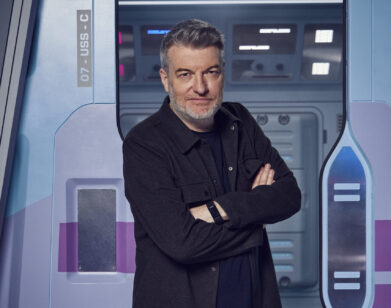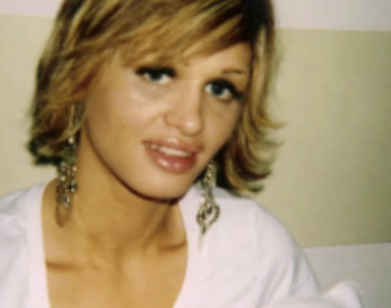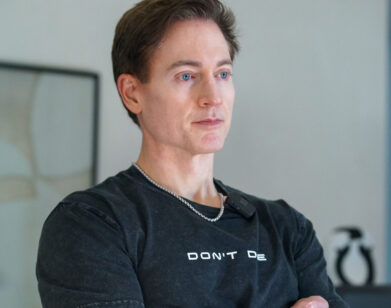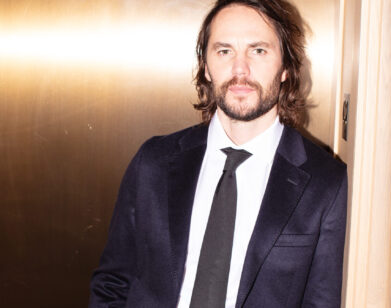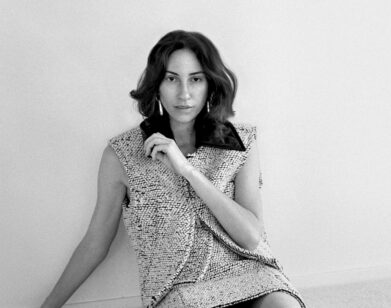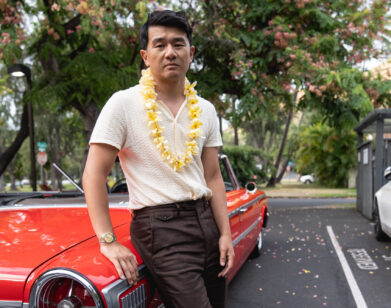IN CONVERSATION
How Directors Angela Patton and Natalie Rae Made the Year’s Most Wrenching Documentary
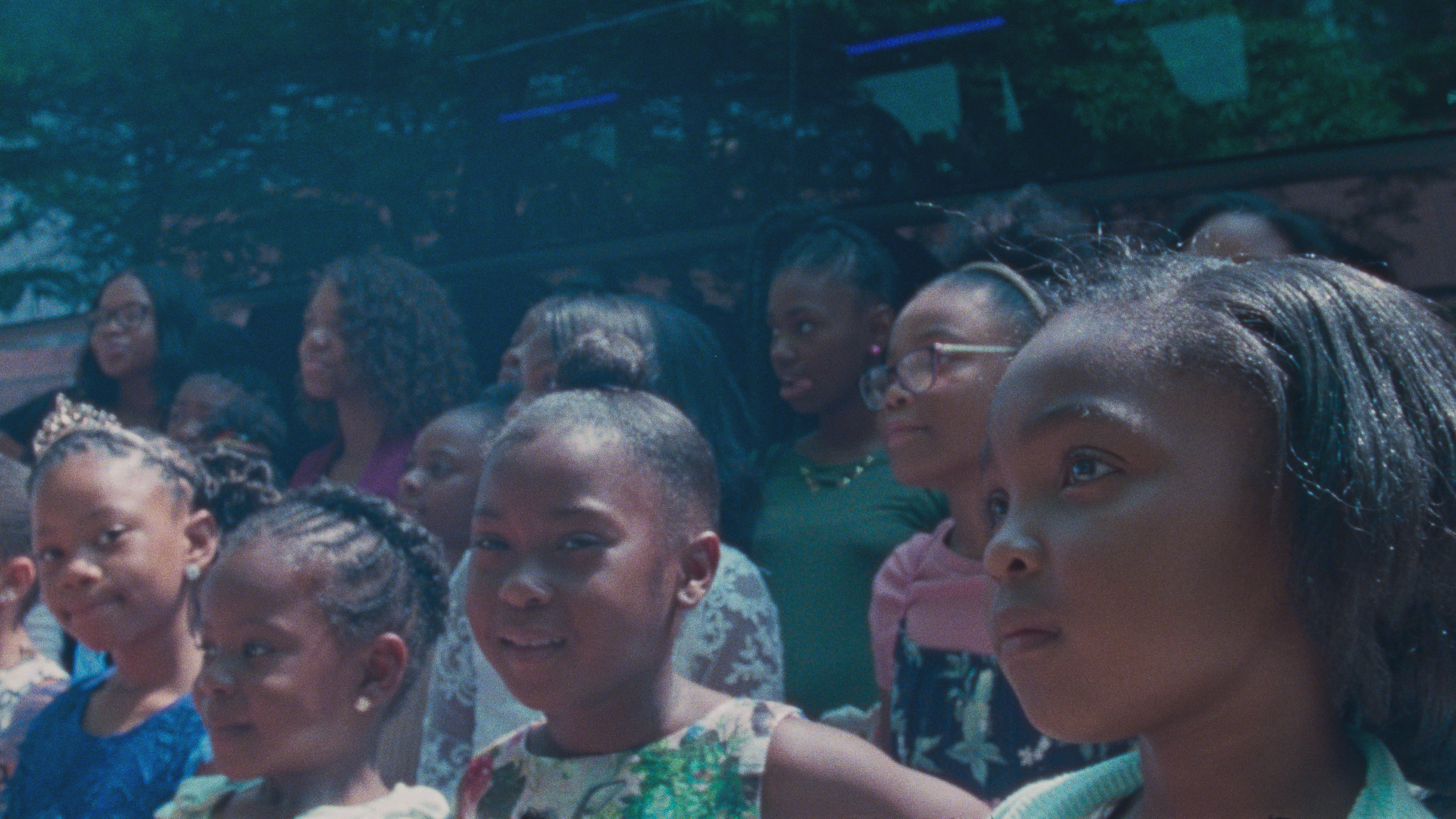
Still from Daughters. Courtesy of Netflix.
The most impressive thing about Angela Patton and Natalie Rae’s documentary Daughters isn’t that it has a perfect score on Rotten Tomatoes. Or that it received a standing ovation at Sundance. Or that it’s already being primed for Oscar talk. What matters most, according to the collaborators, is how the documentary impacted its subjects. Daughters highlights four girls, between the ages of five and 15, in the months leading up to their reunion with their incarcerated fathers at a daddy-daughter dance organized by Patton’s nonprofit, Girls For A Change. In an era where in-person visitation has often been replaced by video or phone calls, the girls get to celebrate with and embrace their fathers. But it’s not just the image of this reunion that will make you grab a Kleenex. Patton and Rae enlisted Kelsey Lu, a prolific singer and cellist, to conduct the score, a “mission” that she describes as a combination of sinking into a puddle of tears on the floor and letting the joy “shine through.” Following its release on Netflix, the Daughters trio reunited to talk about where it all began.
———
KELSEY LU: How’s everyone doing today?
ANGELA PATTON: It’s hot in Virginia, but really good.
NATALIE RAE: We did a screening on Friday night at the Woodstock Film Festival. It was nice to be in the forest a little bit.
PATTON: Very intimate. It was beautiful.
RAE: Great vibe there.
PATTON: How long are you in L.A.?
LU: I’ll be here until Wednesday.
PATTON: Awesome.

Still from Daughters. Courtesy of Netflix.
RAE: What area are you in?
LU: I’m in Silver Lake. I usually end up east every time. But anyway, let’s talk about Daughters. Firstly, I want to say congratulations.
PATTON: Congratulations to you too. Thank you for being a part of this team.
LU: I’m so honored. But I also want to say, thank you for dedicating your lives to shining a light on the importance of empathy, honesty, compassion, and love. It’s been really beautiful now that it’s out in a way that is accessible for everyone. All the messages that I’ve been receiving have been so beautiful. I think it’s easy to get caught in the spiral of chaos and to feel like there’s nothing we can do, but I feel like this shines a light on how important it is to empower one another in our day-to-day lives and how it starts at home. I know how you two met, but that story never gets old. When we are following the path of our hearts and what we know is true and right, it leads us into beautiful places and people who are also aligned in that path. I’d love to hear, Angela, about your journey in starting Girls For A Change.
PATTON: It was about understanding that this work was necessary, and we were right on time when we decided to do this. It’s been a 20-year journey for me. Working with Black girls in Richmond, Virginia, I decided to start the organization because I saw the gaps that they faced, and that hasn’t been an easy one either, because a lot of times when you are trying to do the work that you’ve been called to do, it doesn’t mean everybody is going to respond in the way that you would hope. It doesn’t mean that everyone sees what you see. I used those same experiences as I had been trying to uplift black girls and make sure that they had some access to opportunities. I figured that same energy that I had in my organization could be poured into the film. So, the film is out, but I’m in my office right now with a training going on in the other room for girls who will be new to the program and returning, and one of the things that I will say that the film has done is it has made girls in my program become more transparent and honest about their own lived experiences. It has made them more confident because they were able to see four other little girls that reminded them that they had a story to tell. Some of my girls were just at the DNC and they were speaking, because they understood what it meant to lift up and affirm their voices.

Directors Angela Patton and Natalie Rae. Photo by Lisa Mazzotta.
I’m just happy about everybody’s messages that they’ve been sharing with me, and Natalie, Jessica, Lydia, and I want to save all of our messages and frame them or put them on a quilt or on a wall because I think that that’s inspiring me even more than being on Netflix. How we are touching people’s souls continues to touch mine, and I’m like, “This is the why.” Even through the bumpy roads, this is why we did this, and to see those messages now keeps me going. Our world has been chaotic in the last eight years. It’s been a lot of confusion, and those emotions that you shared around empathy, forgiveness, honesty, confidence, and love just reminds me that we have a lot of that and people had been feeling that it did not exist anymore. So the purity in this film and the root of the work that Girls For A Change does has literally just refreshed and renewed everyone.
LU: Yes. It’s so important to refresh the imagination of the possibility for change.
PATTON: Absolutely.
LU: I think it’s easy to get lost in the loop of what we now have access to. It is a power, but it can be so harmful to know what’s happening globally, and access it so quickly. It can feel just disabling. “What can I do? What can we do?” There’s nothing to do. Everything’s been done before.” It stops the imagination for hope or change, and that’s why these messages, these texts, these quilts that are built are a reminder that there is something else. Even if we can’t see it, we’re creating it and we have to keep creating it.
PATTON: They felt it.
RAE: Totally. It’s like how I felt after watching Angela’s TED Talk and feeling that I needed to write to her. It was so hard to keep going given how the world was changing and everything that’s going on. There were so many reasons to stop the film. But whenever I would get overwhelmed, I would just silence myself, and I could always go back to that inspiration and feel the strength of what these girls were saying and the power of that raw emotion. I think that’s why people are resonating with it, because it’s our hearts that kept it going.

Still from Daughters. Courtesy of Netflix.
PATTON: Absolutely. The dance is over and now the real hard work starts. People were like, “That was the end, right?” Absolutely not, because when you go back to wanting love and empathy and all of this, and I love what you said too, “Sister around family, that is an ongoing process that never ends.”
RAE: It never ends.
PATTON: And then people ask us, “What happens next?” And I’m like, “The work.” So if you’re inspired to do anything, start with yourself and your own healing. That’s what the purpose of this was, even with the other themes in the film around the harmful visitation practices, around having the children of the silenced ones in the criminal justice system and how it’s designed to disrupt families. Also, how we take care of mothers and caregivers when someone is incarcerated, the mental health support that the young people need. There’s so many themes there, but the root of it is family. And we know that when our families are together, our communities will survive through all the storms to get to the sunny days.
LU: I’m curious how you decided to focus on these girls in the film. Over the span of the eight years, what was that process like?
PATTON: Well, this particular Date With Dad program could have gone many different ways. We could have focused on the criminal justice system, the sheriff that said “Yes,” a jail story, or the mothers. But really it came from the girls. They didn’t think it was fair that someone wouldn’t get the same experience of a traditional father-daughter dance just because they were incarcerated. When a father is in your life, girls are more confident, they stand their ground, they speak up more, they ask questions. Academic success can happen when a young girl feels a father is in her life. He tells her, “Yes, you can do math. You can do STEM.” We know those outcomes, so that’s why we chose girls.

Still from Daughters. Courtesy of Netflix.
RAE: We didn’t meet these girls until 2019. When [Date with Dad] got asked to go to D.C. for the first time, we were like, “It’s going to be really powerful to start the film through these girl’s eyes for the first time and not have any preconceived notions about its success.” We met with all of the fathers, and then we started meeting with all the moms and their daughters and explained what the program was. Not every family was comfortable with inviting the cameras in. Initially, we had about six families before the dance that we started filming with, and then, of course, Keith and Aubrey are so close, same with Raziah and Alonzo. There were just clear dads that could speak to their daughters, and it felt like we were having the same conversation. This father would tell me something that I’d see the daughter do the next day. It was beautiful to see that connection even though they were separated. So it really worked out organically and beautifully that we had four girls.
LU: While you were talking about that process of inviting a crew of strangers to come into your house and talk about your life, I was thinking how rare it is for it to not feel like a spectacle. To not feel like you’re just being extracted from. And I think that goes to show how important it is for other people to feel like their lives are important too.
RAE: We all become different people on the other side of eight years.
LU: Definitely. When we all first met over Zoom to talk about it, I had seen the film. I was like, “This is all the emotions. How am I going to be able to get through this without losing it every time?” I think that speaks to what I was saying before: “what do you want your work to be about?” I really sat with myself and had to be like, “Can you do this?” I had to shut all of those no’s out, and I’m so glad I did because the way that it’s affected my life personally has been so massive.
PATTON: Our cinematographer, when the girls came down the hallway to meet their fathers, he was like, “I don’t know what you’re going to have, Natalie, because I’m crying the whole time.” So when I got the score back, I was like, “How did she do this? I don’t know.”

Composer Kelsey Lu. Courtesy of the artist.
RAE: Yeah, we watched it with your score and it was completely transcendent, a whole other level of feeling and connection and holding the girls so safely that it was like I could barely get through it. What did we give you? 10 days?
LU: When I get into the studio, especially when I’m scoring, I go on such a mission of what I’m connecting to personally with this story and with each character, but I’m also releasing the pain. There’s just so much joy there. I allow the love of what I do to be the highest form of energy in the room. Then I complete my mission; I let it all out and I let it come through. Actually, when we had to reopen some of those scenes for edits, especially the hallway scene, that was extremely difficult for me. I knew that I had a limited amount of time to complete the mission, to get everything in two weeks. When I was re-editing, I was a mess. I would have to stop and pause and literally collapse on the ground and be a puddle. I would just be crying. And then I’d be like, “All right, sit up and go into it again.” All of that is a part of it.
PATTON: It shows.
LU: We’re nearing the end, so for the last question: what do you hope audiences will take away from Daughters when watching?
RAE: I hope the raw emotion that is poured through the girls, through Angela, through me, through you, through our editors—I hope it opens up other people’s hearts. Maybe it makes you want to call your father. Maybe it makes you see the wisdom of girls differently.
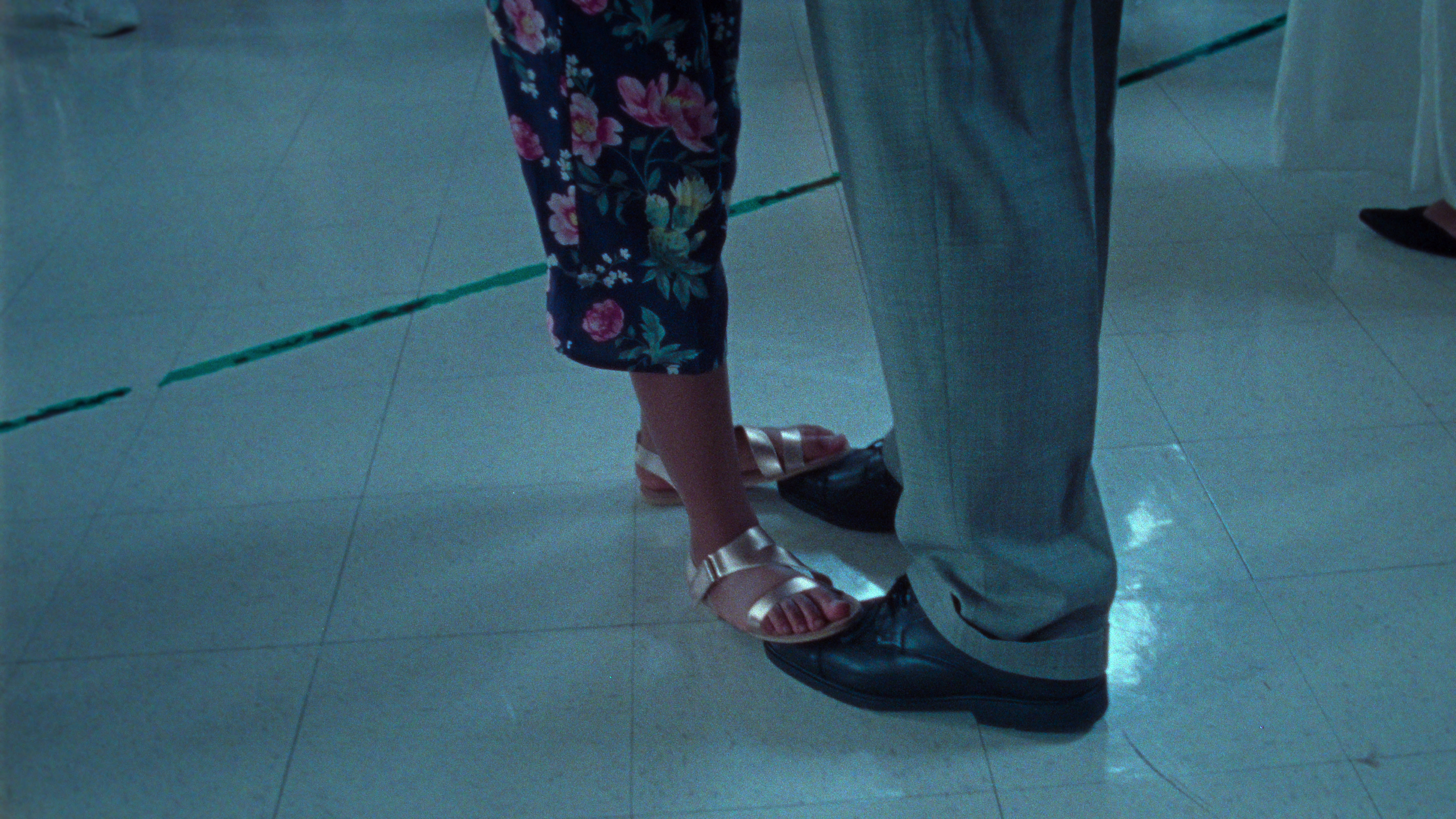
Still from Daughters. Courtesy of Netflix.

